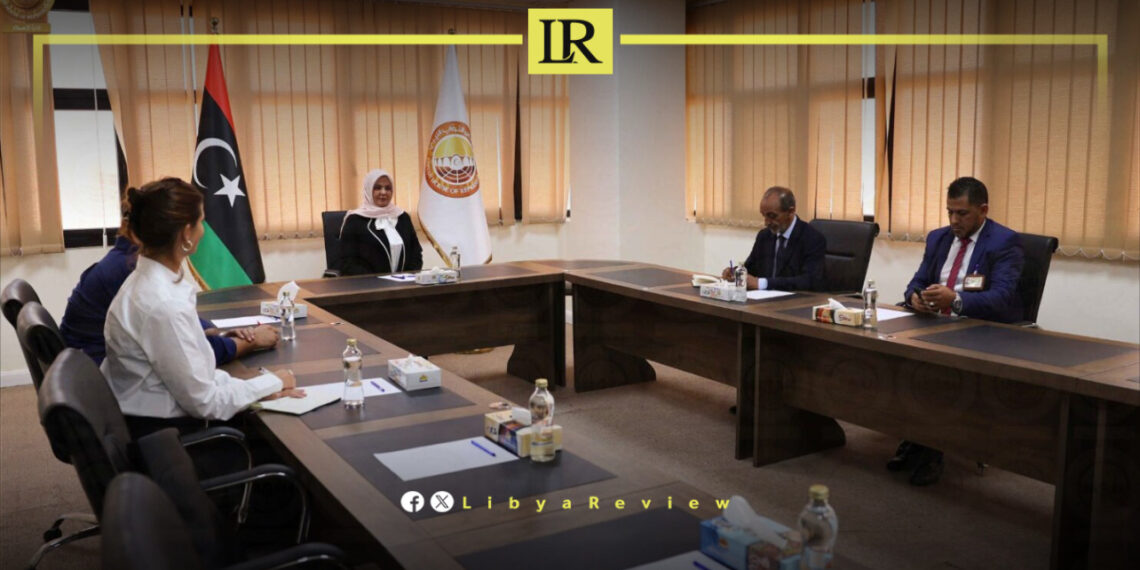The Libyan House of Representatives held discussions with the Swiss Embassy to explore new mechanisms for humanitarian support and human rights collaboration.
Member of the Committee on Human Rights and Public Freedoms, Asmahan Beloun, met with the Swiss Embassy’s Human Security and International Cooperation Advisor, in the presence of Abdelhafid Al-Tajouri, legal adviser at the Ministry of Foreign Affairs. The meeting took place on Tuesday at the House of Representatives’ headquarters in Benghazi.
During the talks, the parties discussed leveraging Switzerland’s participation in the Berlin Group for Humanitarian Work to strengthen joint efforts on humanitarian initiatives inside Libya.
MP Asmahan Beloun emphasized that the Libyan House of Representatives is the sole legitimate representative of the Libyan people, stating that opening channels of cooperation with the legislature means directly supporting the needs of Libyan citizens. She stressed that human rights and basic services remain top priorities for the Parliament.
Beloun also highlighted the possibility of expanding cooperation in the field of human rights, particularly in addressing the Sudanese refugee crisis and tackling the persistent challenge of irregular migration, which continues to strain Libya.
In a separate point, Beloun called on Switzerland to reopen its embassy within Libyan territory, rather than operating from Tunisia as is currently the case. She also suggested the establishment of a Swiss consulate in Benghazi, aligning with the presence of other international missions in the city and reinforcing genuine bilateral cooperation.
Libya has been in chaos since a NATO-backed uprising toppled longtime leader Muammar Gaddafi in 2011. The county has for years been split between rival administrations.
Libya’s economy, heavily reliant on oil, has suffered due to the ongoing conflict. The instability has led to fluctuations in oil production and prices, impacting the global oil market and Libya’s economy.
The conflict has led to a significant humanitarian crisis in Libya, with thousands of people killed, and many more displaced. Migrants and refugees using Libya as a transit point to Europe have also faced dire conditions.
The planned elections for December 2021 were delayed due to disagreements over election laws and the eligibility of certain candidates. This delay has raised concerns about the feasibility of a peaceful political transition.
Despite the ceasefire, security remains a significant concern with sporadic fighting and the presence of mercenaries and foreign fighters. The unification of the military and the removal of foreign forces are crucial challenges.


